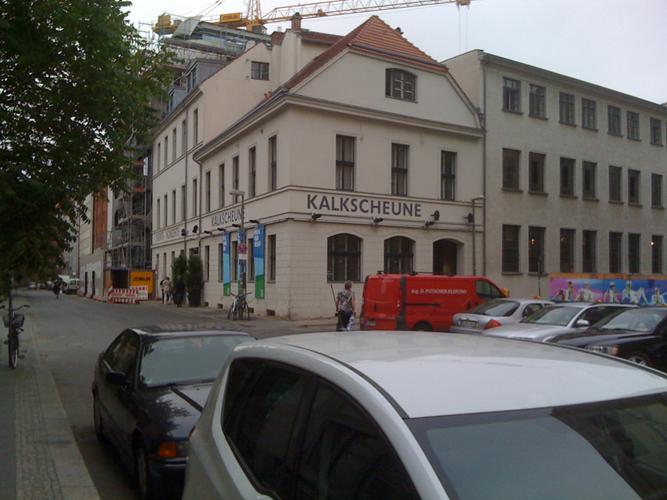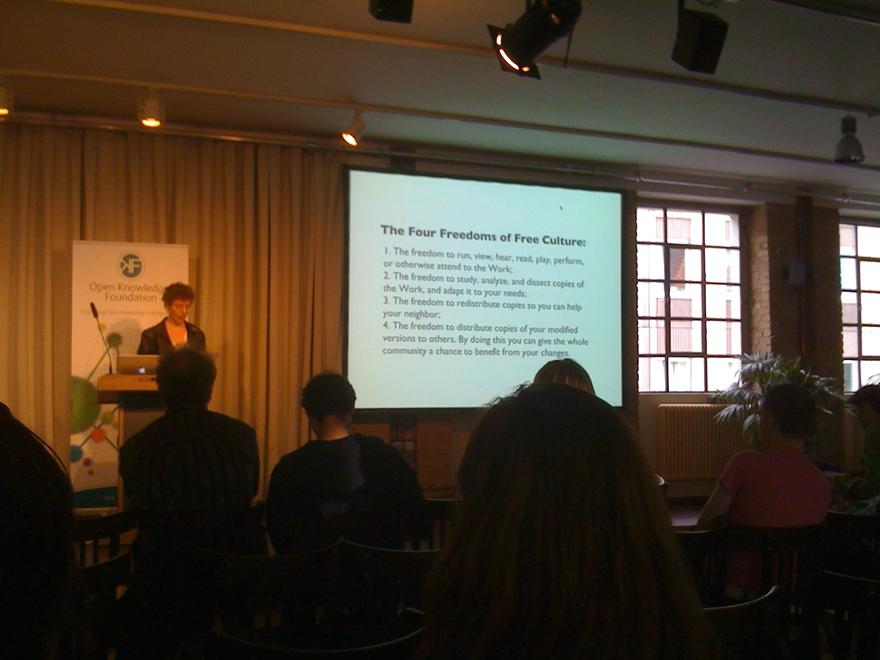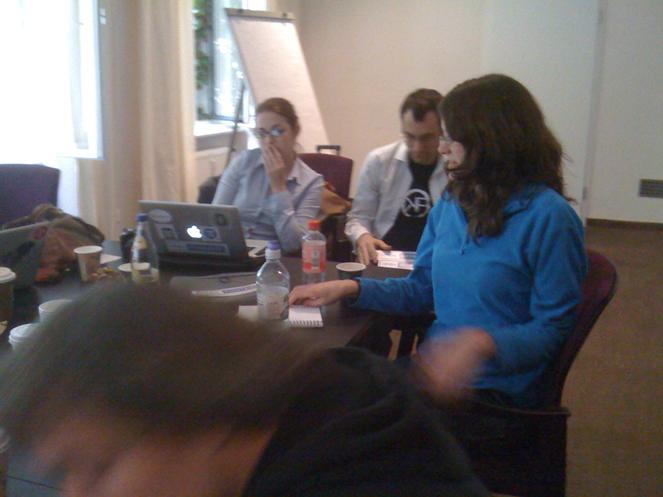I’ve just come back from 4 wonderful days in Berlin at OKCon 2011. About 400 people in the historic Kalkscheune just off FriedrichStrasse. People of all ages, many cultures and countries – some “old hands” , many having their first contact with OKF people. An incredible feeling of warmth and belonging.

With Adrian Pohl (met IRL for first time) and Mark McGillivray we ran a 90 min sessions on Open Bibliography. Working out where we were, where we might go – as a world community. Looking to see who could bring contacts, content, technology. Because that is much of what fuels the OKFN.
And of course ideas. But ideas without implementation often don’t spread. So a key aspect of OKFN is hacking – in the beneficial sense. If you want Open Bibliography you don’t just tell people it would be a good thing, you write software, you transform content, you wrangle licences, you build implementable protocols, you reach out to the wider community. Open Bibliography has all those things and more. And it would not have happened but for the OKF.
I don’t have any photos of the OB workshop (?does anyone?) –
The mind-expanding session for me was Nina Paley (http://blog.ninapaley.com/ ). PLAY THE ANIMATION – it’s a minute. I was sitting at the back of the room hacking and idly listening to talks and then was riveted by Nina. She’s a creative artist in the area of cartoons, book, quilts, etc. And EVERYTHING is CC-BY or CC0. She’s strongly against CC-NC anywhere and now so am I. Here’s Nina showing how the four freedoms SHOULD translate to culture (they don’t normally):

The take-away from this is that the OKF is a real melting pot of ideas, rooted in serious practical action. Governments take OKF seriously. JISC takes OKF seriously. Science Publishers take OKF seriously. Foundations take OKF seriously. It’s a dynamic, responsible yet flexible and highly innovative organization.
When Rufus asked me to be on OKF Advisory Board in (ca) 2005 I though his plan to accrete Knowledge in Knowledge Forge was unrealistic. But I thought (somewhat arrogantly) that I might be able to give some guidance, and agreed to be on the Board. It’s one of the best decisions I have made.
Because the Advisory Board is part of the “Organizational DNA” of the OKF.
About 20 of us met on Saturday to build the Organizational DNA. Here’s Lucy Chambers, Rufus Pollock and Jenny Molloy

The organizational DNA is the thing that keeps an organization going , and in the right direction. It’s the touchstone that we come back to when it’s not clear what we should be doing. Should we expand? How? Do we partner with X? What are the limits? Etc. Religions and nations have organizational DNA. We heard how Amnesty International has clear organizational DNA and transcription/translation.
It’s harder for evolving organizations and even harder in cyberspace. Here are my examples of cyber Organizations with clear DNA.
- Wikipedia. It exists to create an Open Encyclopedia rooted in democratic and meritocratic action. Millions of people contribute to WP because the OD is so clear.
- Blue Obelisk http://www.blueobelisk.org . Very simple – perhaps little more than a virus. No membership, no money, no meetings. Simply Open Data, Open Source, Open Standards in Chemistry. That is enough to keep us going and we’ll have more on this blog
- Advocacy groups. Open Rights Group. Quadrature du Net. Etc.
For me the genetic code of the OKF is the Open Definition (http://www.opendefinition.org/ ). Everything has to fit onto that.
The Open Knowledge Definition (OKD) sets out principles to define ‘openness’ in knowledge – that’s any kind of content or data ‘from sonnets to statistics, genes to geodata’. The definition can be summed up in the statement that “A piece of content or data is open if anyone is free to use, reuse, and redistribute it — subject only, at most, to the requirement to attribute and share-alike.”.
Everything is based on that. Break it and the system falls apart. Just like ACGT is central to DNA.
But DNA is more than the syntax. And that’s the hard bit. There are no maps for guaranteeing success in designing organizations. There are success stories and failures. Rapid growth can be good and bad. Diversity can be good and bad. Pluralism and decentralization has merits and problems.
The OKF has been wrestling with these for some years. It will continue to do so. But we are now a positive force in the World, with many clear missions. We trust each other enough to spread activities. Open Bibliography is pushing ahead without requiring tight central control. Science, through open-science, Panton, etc. has its own aggregation of people and activities. The great thing about OKF is how we pick up really keen, focussed, volunteers. As long as it stays like that we have few worries. I’ll just highlight the enormous contribution that Jenny has made in cohering science in the OKF. That Adrian Pohl has done in Open Bibliography, others like Daniel Mietchen who is organising events in this area.
And Daniel Dietrich and his team who created a wonderful OKCON2011. As a program committee member I marvel at what they achieved. Thank you.